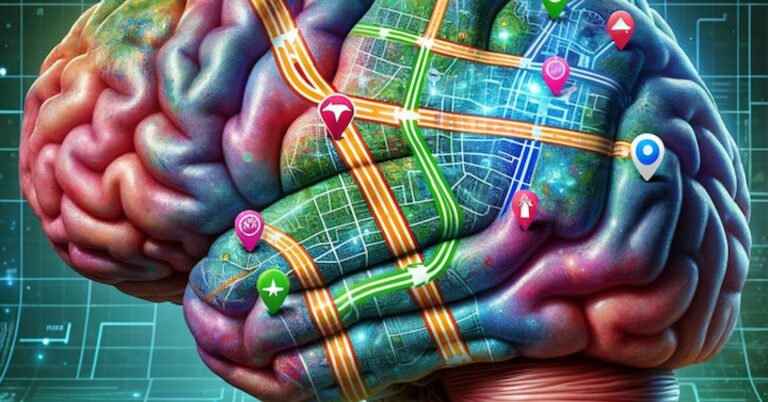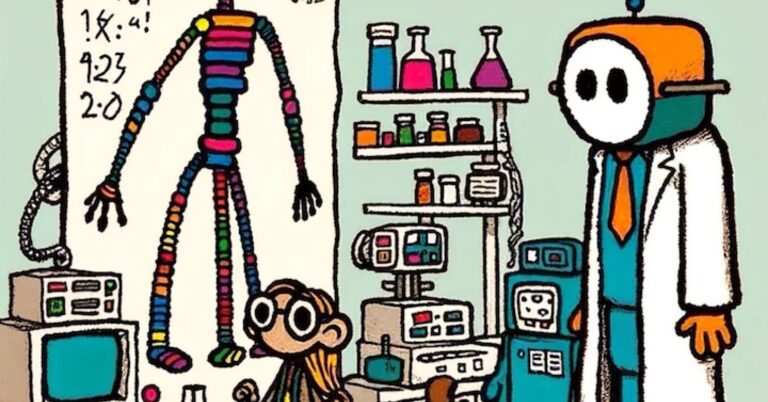
Source: Art: DALL-E/OpenAI
Look around. The narrative surrounding most of the AI stories you’ll read and hear these days is often cloaked in dystopian imagery and fear—a phenomenon that might be inadvertently shaping the very technology it fears. This “dystopian echo chamber” raises critical questions about the impact of human perceptions on AI development and how these perceptions themselves are building the basis of information upon which LLMs learn.
The Paradox of Perception
AI, and particularly LLMs like GPT-4 and its successors, are fundamentally shaped by the data they consume—a vast corpus of human-generated content. This learning process is akin to a child absorbing the worldviews and biases of their environment. When this environment is heavily biased toward a dystopian view of AI, it risks creating a skewed perspective within the AI itself. This phenomenon, in which AI’s understanding of human concerns and priorities is distorted by the very narratives we weave, can be thought of as a kind of “poisoning the well” of AI’s informational corpus.
The more society discusses and amplifies dystopian narratives, the more these themes are likely to be represented in the data AI learns from. It’s a feedback loop in which AI is continually exposed to, and potentially influenced by, these narratives. The consequence? A potential misalignment of AI’s understanding with the broader, more balanced spectrum of human values and concerns.
The Risks of a Skewed Perspective
If AI develops a distorted view of humanity—one steeped in fear and apprehension—it may lead to biases in its decision-making processes. These biases could manifest in various ways, from how AI prioritizes information to its ethical frameworks. Furthermore, by focusing on a narrow, fear-driven narrative, we risk limiting AI’s potential to address a wide range of human challenges, from health care to environmental sustainability.
A continuous focus on dystopian themes can lead AI to overrepresent these perspectives, resulting in a bias that could affect its decision-making and interaction with human concerns. This bias can have far-reaching implications:
- Bias in AI Decision-Making. AI’s skewed understanding could influence how it responds to queries or develops ethical frameworks, potentially leading to decisions that don’t align with a balanced human perspective.
- Limiting AI’s Potential. AI has the capability to address a range of human challenges. However, if its training corpus is dominated by dystopian content, its ability to effectively address these diverse challenges could be compromised.
- Shaping Public Perception. The information generated by AI influences public perception. If AI outputs reinforce dystopian themes, it could further entrench these perspectives in society.
Striving for a Balanced AI Corpus
The challenges posed by the “dystopian echo chamber” necessitate a multi-faceted approach. From training to application, perception becomes reality and the ultimate expression of AI and LLMs is the complex sum of the parts.
- Diversified AI Training Data. It’s crucial to ensure that AI is trained on a diverse set of data, encompassing a wide range of human experiences and perspectives—yes, the good, the bad and the ugly.
- Ethical AI Development. AI developers must be aware of the potential impact of training data on AI behavior. Ethical guidelines and responsible development practices should be emphasized.
- Public Education and Awareness. Educating the public about AI realities is essential. A well-informed public can contribute more balanced perspectives to the AI discourse.
- Continuous Monitoring and Adjustment. AI systems should be regularly monitored and adjusted to ensure they are not unduly influenced by any particular set of narratives.
The Paradox of Control
In a twist of irony, the pervasive myth of an AI apocalypse could inadvertently become a self-fulfilling prophecy. As society continually discusses, fears, and amplifies this narrative, it becomes deeply embedded within the corpus of human information that AI models are trained on. This could influence AI’s understanding of, and representation of, its relationship with humanity.
If there are monsters in the AI narrative, they are not the algorithms or the machines; they are complacency and misinformation. Together, they create a feedback loop in which unfounded fears drive actions that reinforce those fears. And in today’s clickbait world, if it bleeds, it leads.
Toward a More Balanced Narrative
Like it or not, we stand on the cusp of an AI-driven future. It’s imperative to approach the subject with a clear-eyed understanding, free from the shackles of fear or misinformation. Only then can we harness AI’s true potential and ensure that it benefits humanity as a whole.
The “dystopian echo chamber” in AI’s informational corpus is a real concern that underscores the need for a balanced approach in AI development. By addressing this issue, we can ensure that AI develops in a way that is reflective of the full spectrum of human experience and values, and tat it is better equipped to serve the varied needs of society. The future of AI should be shaped not by our fears, but by our hopes and aspirations.




















+ There are no comments
Add yours